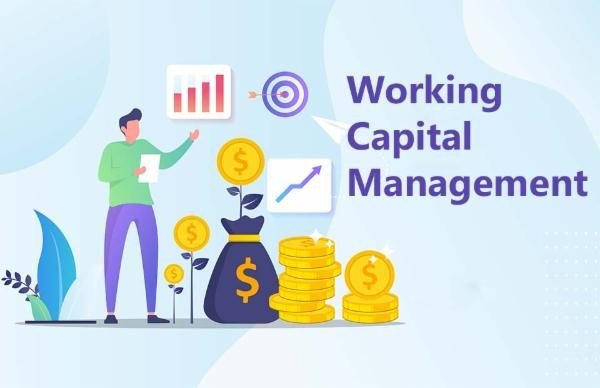Working capital, sometimes referred to as ‘net working capital’, can be regarded as a financial indicator that assesses the liquidity and immediate financial health of a firm. Simply put, it refers to the funds required to sustain the daily operations and fulfil the immediate financial responsibilities of a business.
The working capital is calculated by subtracting a firm’s current liabilities from its current assets. Here, current assets include inventory, cash, and accounts receivable; while current liabilities consist of short-term debt and accounts payable. Effective working capital management is all about balancing these components (what the firm owns and owes) to ensure sufficient liquidity for day-to-day operations.
The math is quite simple here. When a firm has a positive working capital, it indicates sufficient cash in hand to pay its current liabilities; and a negative working capital signifies a cash shortage. That said, let’s take a closer look at why managing your working capital is crucial for business growth.
Why is Working Capital Management Crucial for Business Growth?
Most businesses that experience rapid growth notice a sharp decline in their working capital as they secure larger clients and contracts. Under these circumstances, a firm might be experiencing significant success and showing positive growth, yet, face some serious challenges with cash flow. This highlights the importance of keeping a balanced working capital that will eventually drive business growth. Listed below are 5 reasons why working capital management is essential for business development.
- Ensures Seamless Operations
The daily financial obligations of a business can include supplier payments, employee salaries, and operational expenses. When an organisation can fulfil its short-term commitments promptly, it can ward off potential disruptions and guarantee uninterrupted production/service delivery.
Any company that has its accounts receivable under solid control can maintain a consistent cash flow. Later, it can use this cash to pay its sellers on time, buy raw materials, or invest in other parts of the business. The goal is to have an uninterrupted operational flow.
- Facilitates Business Expansion
Having a strong working capital enables businesses to seize growth opportunities. This can include venturing into new markets, introducing new products, or capturing smaller companies. Moreover, sufficient capital can fund projects that promote growth, such as research and development, marketing, and other initiatives.
In the context of an MSME (Micro, Small, and Medium Enterprises), holding an MSME Certificate can provide access to a range of government schemes and incentives that can be highly beneficial. One such initiative includes the Stand Up India Scheme. This program offers financial support (loans) to MSMEs, allowing them to secure sufficient working capital for growth and innovation. It aims to encourage entrepreneurship goals among women and marginalised communities.
- Improves Financial Stability
By closely monitoring inventory levels, cash flow, and receivables, businesses can ward off unnecessary loans. As a result, this lowers the interest expenses and improves profitability. Furthermore, for improved financial stability, businesses can make use of loan calculators.
With the help of a business loan EMI calculator, firms can evaluate the expenses associated with potential loans and manage their repayments strategically. By balancing their working capital, businesses can reduce their dependence on external financing and instead focus more on utilising funds generated internally.
- Boosts Credibility
When considering a business loan application, lenders or financial institutions often evaluate a company’s working capital position. Any company that has a strong working capital and a consistent history of meeting their financial obligations, has a solid credit profile.
Consequently, they are perceived as less risky and are more likely to be offered favourable loan terms. Moreover, a firm that has a strong working capital position can secure a business loan at favourable interest rates. This is especially crucial for MSMEs seeking to grow their operations or invest in new projects.
- Manages and Minimises Financial Risks
Given the current economic state, businesses face constant financial risks. Some of these include market fluctuations, shifts in consumer preferences, and supply chain disruptions. However, effective working capital management helps businesses build a buffer against potential risks and overcome short-term financial obligations. They wouldn’t have to sell their assets at a loss or take out emergency loans.
In addition, businesses can highly benefit from using the GST calculator. It helps with precise calculations of tax liabilities under the GST (Goods and Services Tax) regime. Having a clear understanding of tax obligations allows businesses to effectively minimise unwanted risks and manage their consistent cash flow.
What’s the Takeaway?
Summing up, the importance of working capital cannot be understated. It is quite essential for running a successful business. In a nutshell, ensuring sufficient liquidity is crucial for businesses to operate smoothly, grab growth opportunities, and boost their financial health.
Moreover, having a solid grasp of working capital management is significant for sound leadership and management responsibilities. Even if you may not have strong expertise in finance and accounts, maintaining financial discipline is a non-negotiable when it comes to managing any business vertical.
